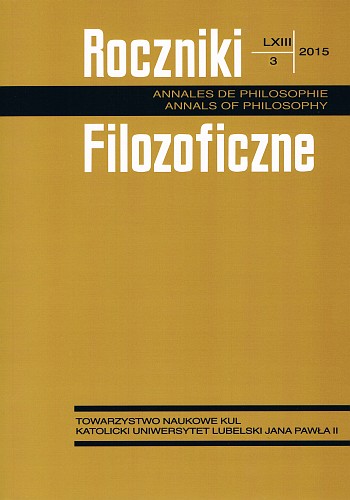Mystical Interpretation of the Exile and Return to Paradise in Eriugena’s Periphyseon
Mystical Interpretation of the Exile and Return to Paradise in Eriugena’s Periphyseon
Author(s): Agnieszka KijewskaSubject(s): Philosophy
Published by: Towarzystwo Naukowe KUL & Katolicki Uniwersytet Lubelski Jana Pawła II
Keywords: allegorical interpretation; mystical ascent; Neoplatonism; Eriugena; Paradise
Summary/Abstract: Over the recent years we have welcomed a number of significant publications (in particular the contributions by Peter T. Struck and Mikołaj Domaradzki) highlighting the importance of allegory and allegorical interpretation in ancient literary culture. The allegorical approach to literary text identifies the literary work as a puzzle, the solving of which introduces the reader to a profounder kind of knowledge, a knowledge that is hidden from the eyes of the “uninitiated.” This kind of interpretation implies a special understanding of the function of language, which “by revealing— conceals”. Allegorical interpretation assumed paramount importance in Neoplatonism, the philosophy which attributed religious functions to the philosophical endeavor of man (such functions as assimilation to God and return to man’s (spiritual) fatherland). The most salient features of the Neoplatonic allegorism have been presented by Peter T. Stuck in his article Allegory and ascent in Neoplatonism complete with the account of the role attributed to allegory as a guide along the path leading to mystical union. In this article attention has been focused upon those elements of the Neoplatonic allegorical exegesis, which may be of use in exploring the specifics of Eriugena’s interpretation of the themes of the exile from and return to the paradise.
Journal: Roczniki Filozoficzne
- Issue Year: 63/2015
- Issue No: 2
- Page Range: 13-26
- Page Count: 14

